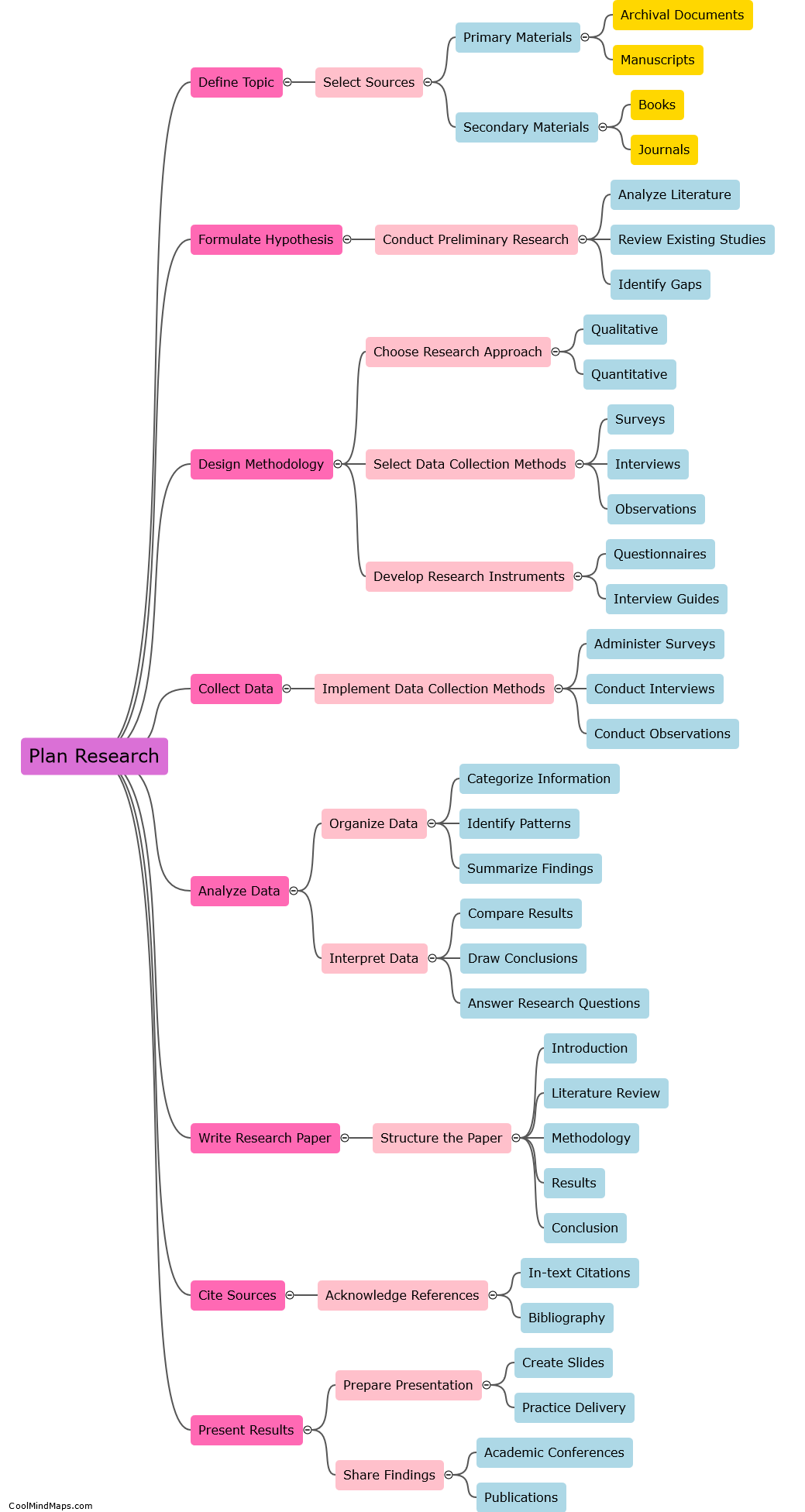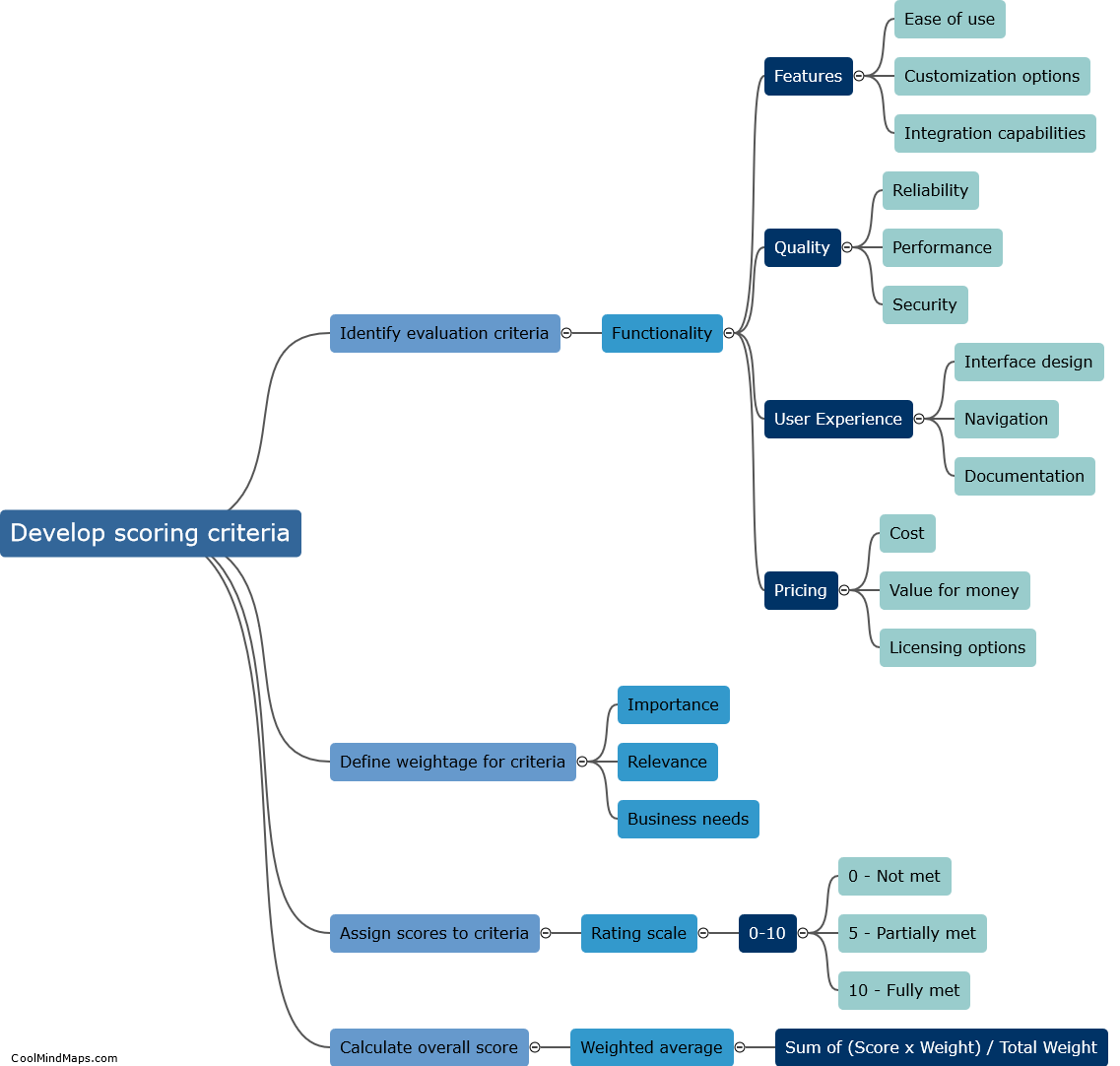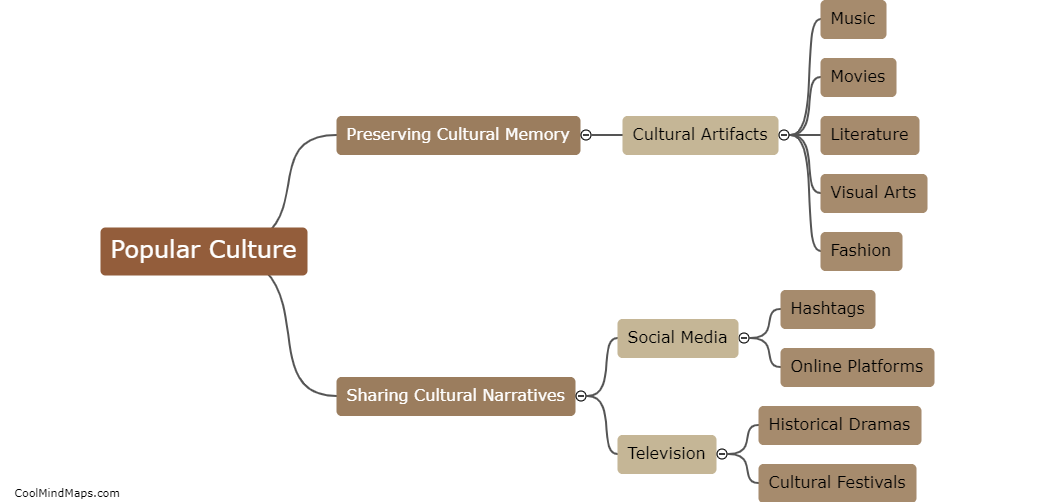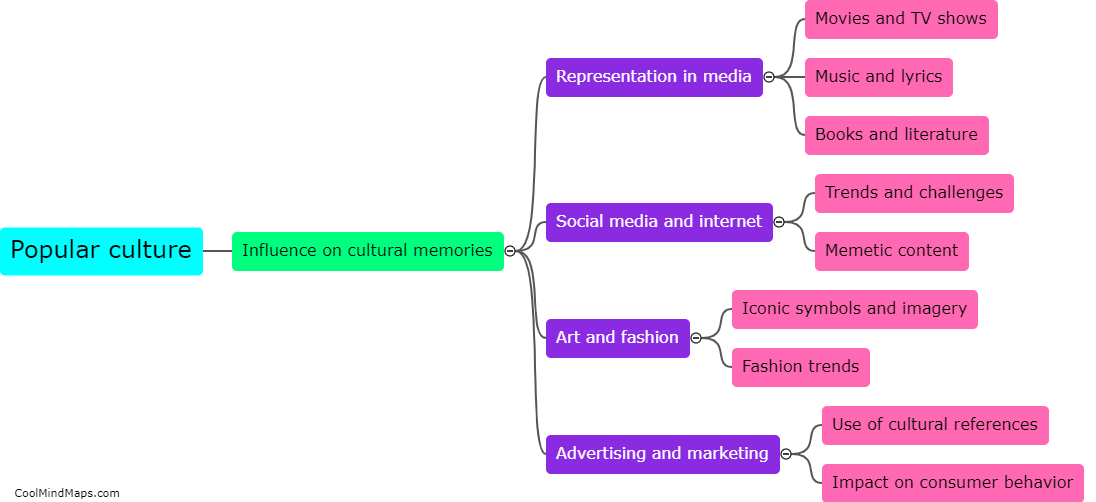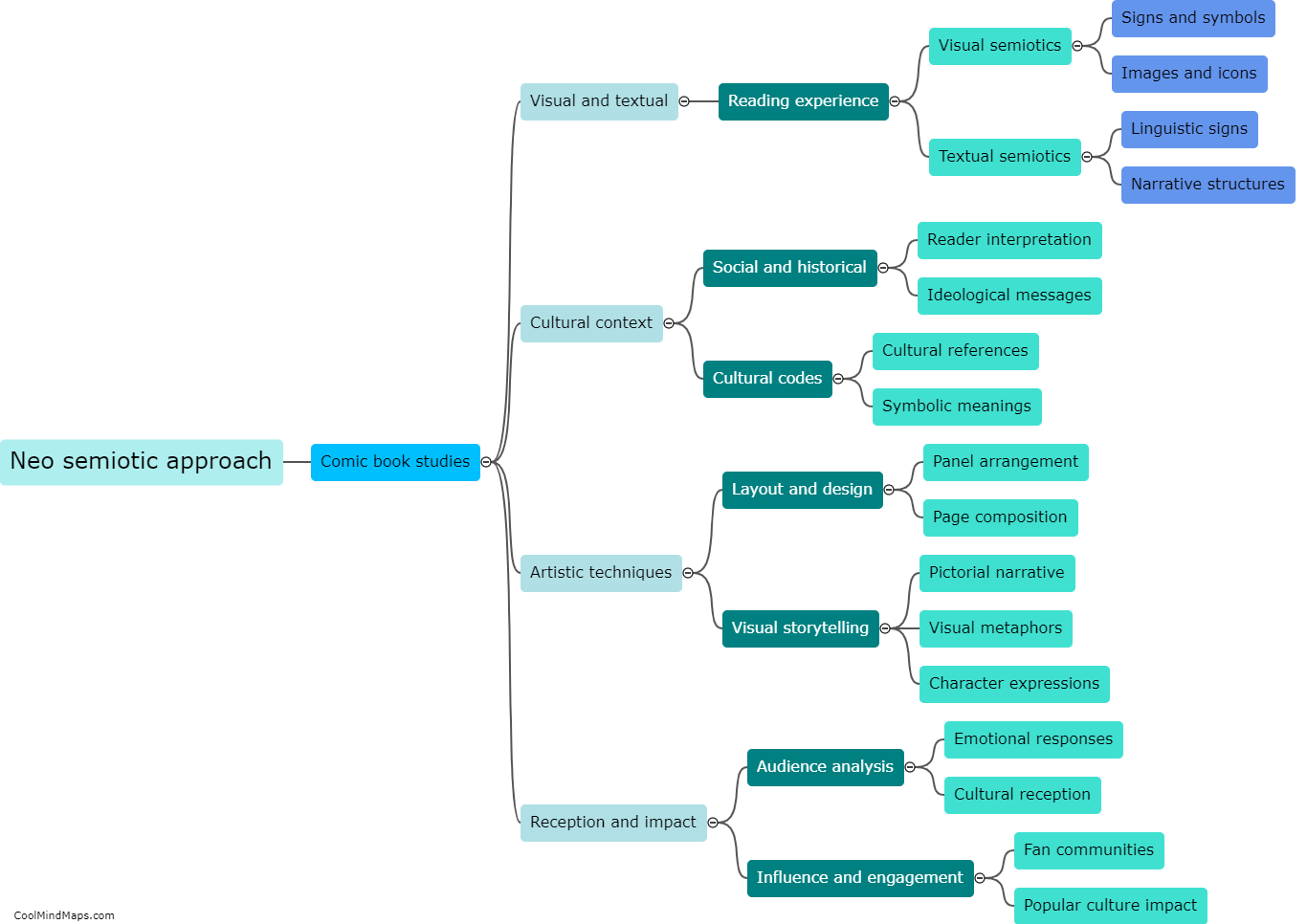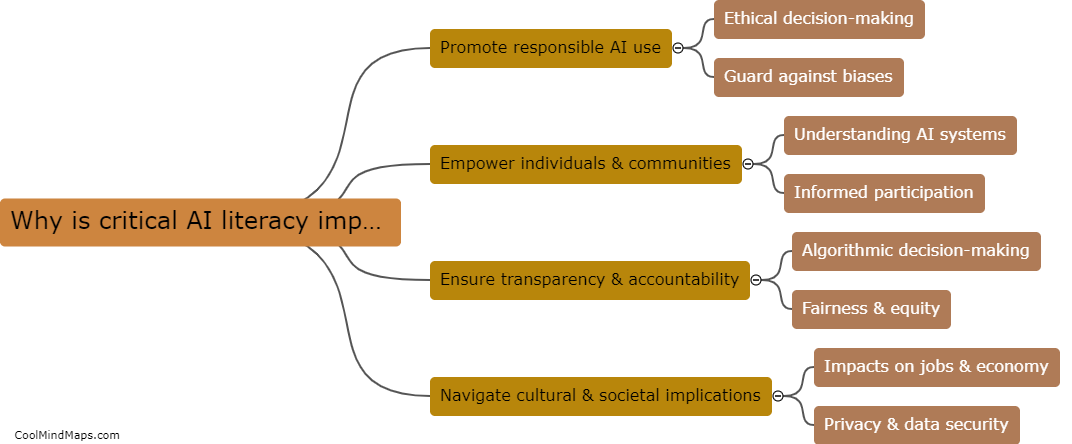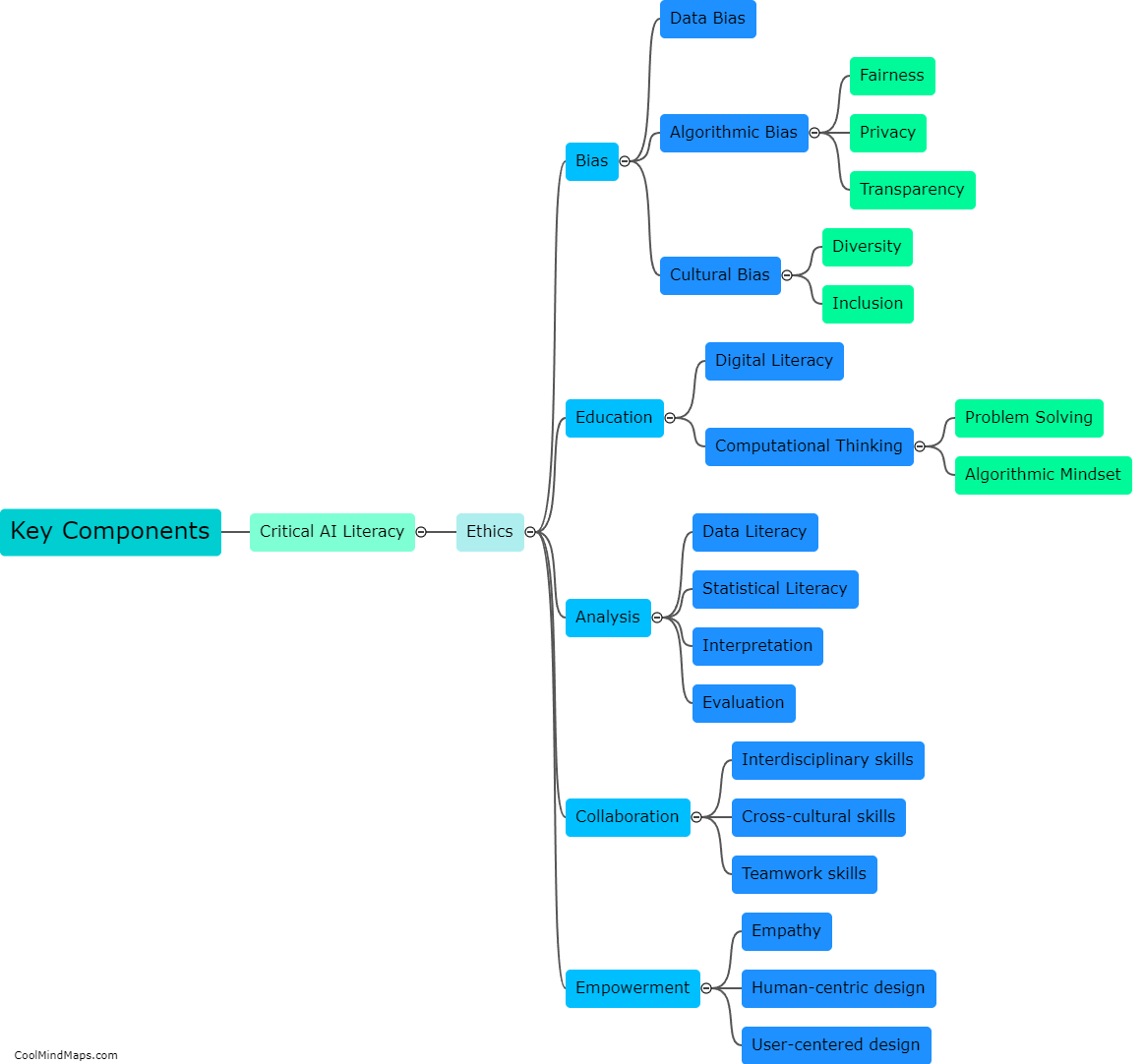What is the definition of critical AI literacy?
Critical AI literacy refers to the ability to understand and critically analyze the impact and implications of artificial intelligence (AI) systems on individuals, societies, and various aspects of life. It involves acquiring knowledge and skills to examine AI technologies, algorithms, and their underlying biases, limitations, and ethical concerns. This form of literacy empowers individuals to question the decisions made by AI systems, challenge potential discrimination or inequity, and evaluate the ethical and societal consequences of AI adoption. It also involves recognizing the areas where AI can be beneficial while being aware of the potential risks and ensuring responsible and equitable development, deployment, and use of AI technologies. Critical AI literacy enables individuals to actively engage in discussions, decision-making processes, and policy-making related to AI in order to shape its development and societal impact.
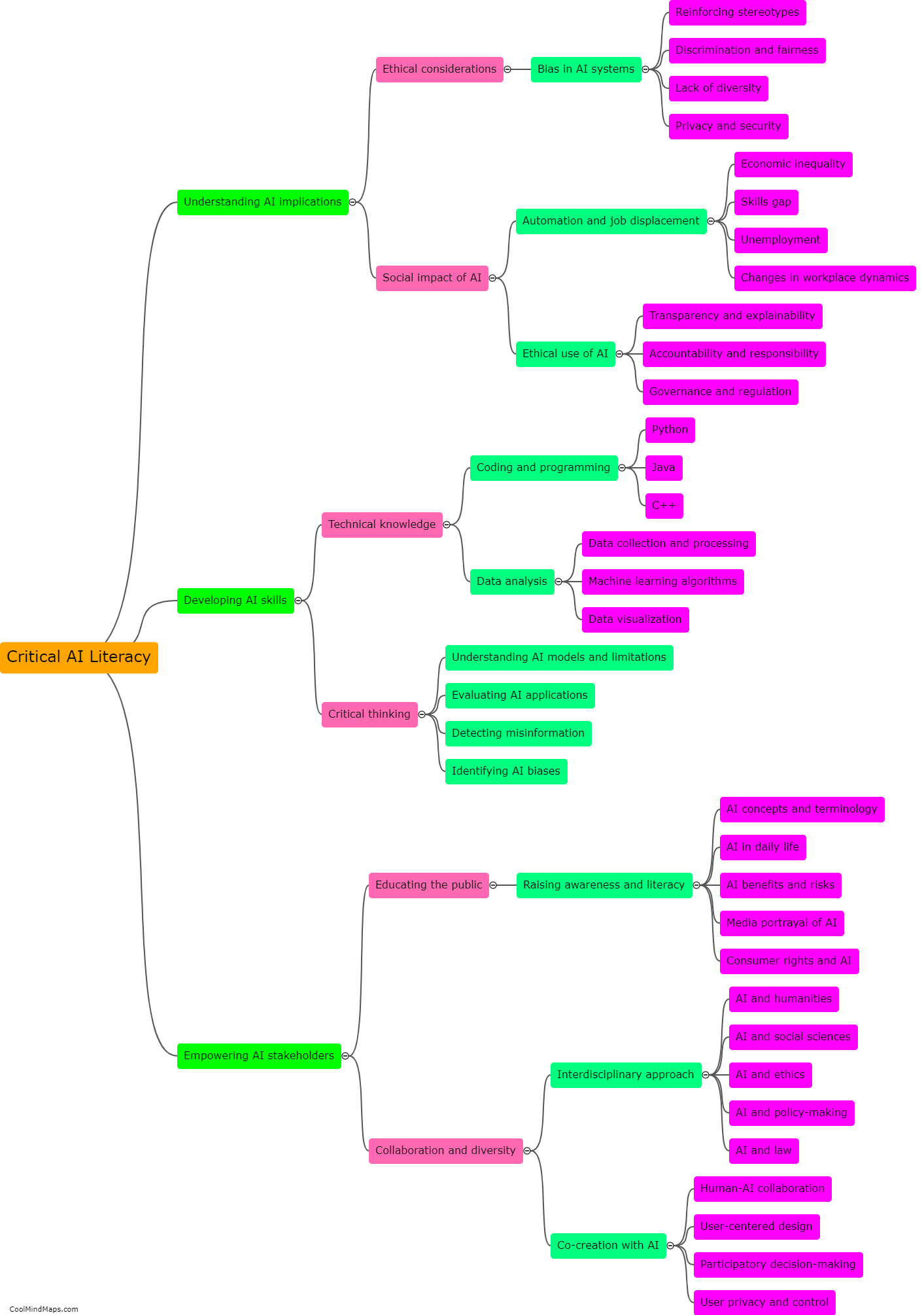
This mind map was published on 23 October 2023 and has been viewed 96 times.
